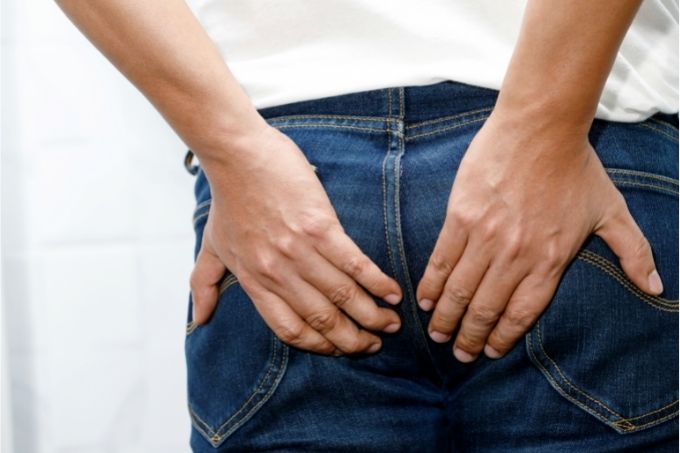
Hemorrhoids are swollen tissue and blood vessel cushions located in the lower rectal region. Hemorrhoids, alternatively referred to as piles, are enlargements of the veins in the rectum and anus. They do not induce symptoms in some people. However, they can cause stinging, burning, bleeding, and pain in certain people, particularly while sitting.
If you are having troubles regarding hemorrhoids, you may wonder, “Can hemorrhoids pop?” While hemorrhoids can rupture, they do not “pop” in the same way that a pimple does. A hemorrhoid is not the same thing as a pimple or a boil. Hemorrhoids are bulging or irritated rectal veins. They will only explode in the most challenging situations to release blood.
Hemorrhoids are classified into two types:
Internal hemorrhoids begin to form in the rectum.
External hemorrhoids form beneath the skin, surrounding the anal orifice.
External and internal hemorrhoids both have the potential to develop thrombosed hemorrhoids; which results in the formation of a blood clot within the vein. Although thrombosed hemorrhoids are not harmful, they can cause significant discomfort and irritation. A hemorrhoid might rupture if it grows overly swollen with bleeding.
How does a hemorrhoid rupture?
A thrombosed hemorrhoid might explode if it becomes too full of blood. This may result in some bleeding for a brief while. Bear in mind that a thrombosed hemorrhoid is typically quite painful before rupture. Once it bursts, you’re likely to experience immediate relief from the removal of built-up blood pressure.
If you have some bleeding and experience pain or discomfort, you most likely have bleeding hemorrhoids rather than ruptured hemorrhoids.
Symptoms of ruptured hemorrhoid include the following:
Constant, intense pain and bleeding are symptoms of thrombosed hemorrhoids that occur when the thrombosed hemorrhoid ruptures the skin covering. When a thrombosed hemorrhoid is ruptured, individuals may see bright red blood in their stool, toilet bowl, or toilet paper after wiping.
How do I respond if a hemorrhoid bursts?
If hemorrhoid breaks, it is essential to consult a physician. It usually does not require considerable treatment at that stage. Still, it is prudent to have the region examined to rule out anything more serious.
Generally, a ruptured hemorrhoid does not require treatment. However, you may like to take a sitz bath to calm and clean the region as it heals. Additionally, a sitz bath can aid in the healing process by increasing blood flow to the area.
Follow these instructions to take a sitz bath:
Fill a clean bathtub three to four inches deep with warm water — but not too hot.
Allow 15 to 20 minutes for the area to soak.
Bend your knees or extend your legs over the tub’s edge to ensure that the region is entirely soaked.
Make sure to dry the area with a clean cloth, and be careful not to rub or scrape.
Should I seek medical attention if a hemorrhoid bursts?
Any anal bleeding should be investigated thoroughly. If you experience prolonged anal bleeding, it’s advisable to consult a doctor to rule out other possible causes. Because hemorrhoids cause not all bleeding, it is critical not to self-diagnose. Bleeding can occasionally signify a more serious underlying illness, such as colorectal or anal cancer.
Tell them if you are experiencing any of the following symptoms in addition to bleeding:
- changes in the quality or color of the stool variations in the frequency of bowel movements
- anal ache
- loss of weight nausea or vomiting fever dizziness
- lightheadedness
- abdominal discomfort
- Bear in mind that inflamed hemorrhoids can potentially produce prolonged intermittent bleeding.
Final thoughts
The blood from ruptured hemorrhoids may appear problematic, but it is typically harmless. However, a hemorrhoid that is loaded with blood will be excruciatingly uncomfortable in the days preceding its rupture. The discomfort is strong enough that the majority of patients seek treatment before the hemorrhoid bursts.
Any form of anal pain, particularly if it is associated with bleeding or swollen tissue, should be checked by a physician. The pain may not always be due to hemorrhoids. It is critical to contact a doctor to rule out anything more serious. Other disorders that might mimic hemorrhoids include colorectal cancer, irritable bowel syndrome, constipation, and anal fissures.